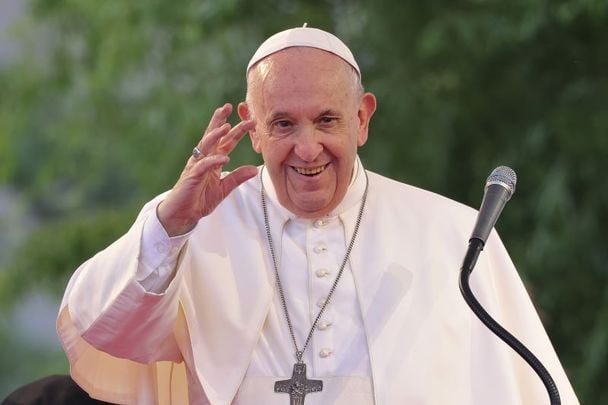Pope Francis has been known for his more inclusive and accepting stance towards the LGBTQ+ community compared to his predecessors. In 2013, he famously said "Who am I to judge?" when asked about gay priests.
He has spoken out against discrimination against the LGBTQ+ community and has called for the Catholic Church to be more welcoming to its members.
He has also said that atheists are by no means unable to get to heaven. “The Lord has redeemed all of us, all of us, with the Blood of Christ, all of us, not just Catholics. Everyone! 'Father, the atheists?' Even the atheists. Everyone!" he told an atheist Italian journalist.
Late last month, Francis told the Associated Press that laws criminalizing homosexuality were “unjust” and that “being homosexual is not a crime.”
Francis has privately met with a transgender person. He has spoken powerfully on global warming and clearly took issue with downplaying its influence as many conservatives have.
His liberal positions have put him at odds with deeply conservative elements in the Catholic Church. Pope Benedict, Francis’ predecessor, called homosexuality a sin and left no room for acceptance of the gay lifestyle.
But Francis has the ordinary folk with him. They know how important a caring voice from the Vatican is. It is closeness to the flock, not expertise in ancient Latin texts, that makes the modern papacy work.
Francis has made it clear that he stands in the liberal tradition. He has been critical of right-wing ideologies and has spoken out against the rise of populism and nationalism movements. He has criticized the exclusionary and divisive rhetoric used by some right-wing leaders and has called for a more inclusive and compassionate society.
In a 2019 document, Francis called for a “common home” that is “open to all,” and warned against "the rise of various forms of populism." He has also spoken out against the use of fear and division to gain political power.
He is a pastor and not a scholar like Benedict who prioritized arcane doctrine. Francis is focused on the spiritual and pastoral needs of the church and its followers. He encourages Catholics to have a personal relationship with God, calls for a more inclusive, merciful, and compassionate church, and preaches for social justice.
As a pastor, his primary role is to guide and care for the spiritual well-being of the Catholic community. As such, his focus is on preaching the message of the Gospel, promoting compassion and forgiveness, and providing spiritual guidance to Catholics around the world.
But the struggle within the church between the forces of liberalism and conservatism will continue to escalate.
The next pope will be critical. If we get a Benedict type, it will push the church strongly to the right. If a liberal is named, it will signal a new era of pastoral focus which would be the best outcome by far.
The longer Francis stays in charge at the Vatican, the more cardinals he can invest in and the greater the possibility of another pastoral pope.
But there is nothing certain. Most thought Benedict's successor would be conservative. That was certainly not the case.
*This editorial first appeared in the February 1 edition of the weekly Irish Voice newspaper, sister publication to IrishCentral.




Comments